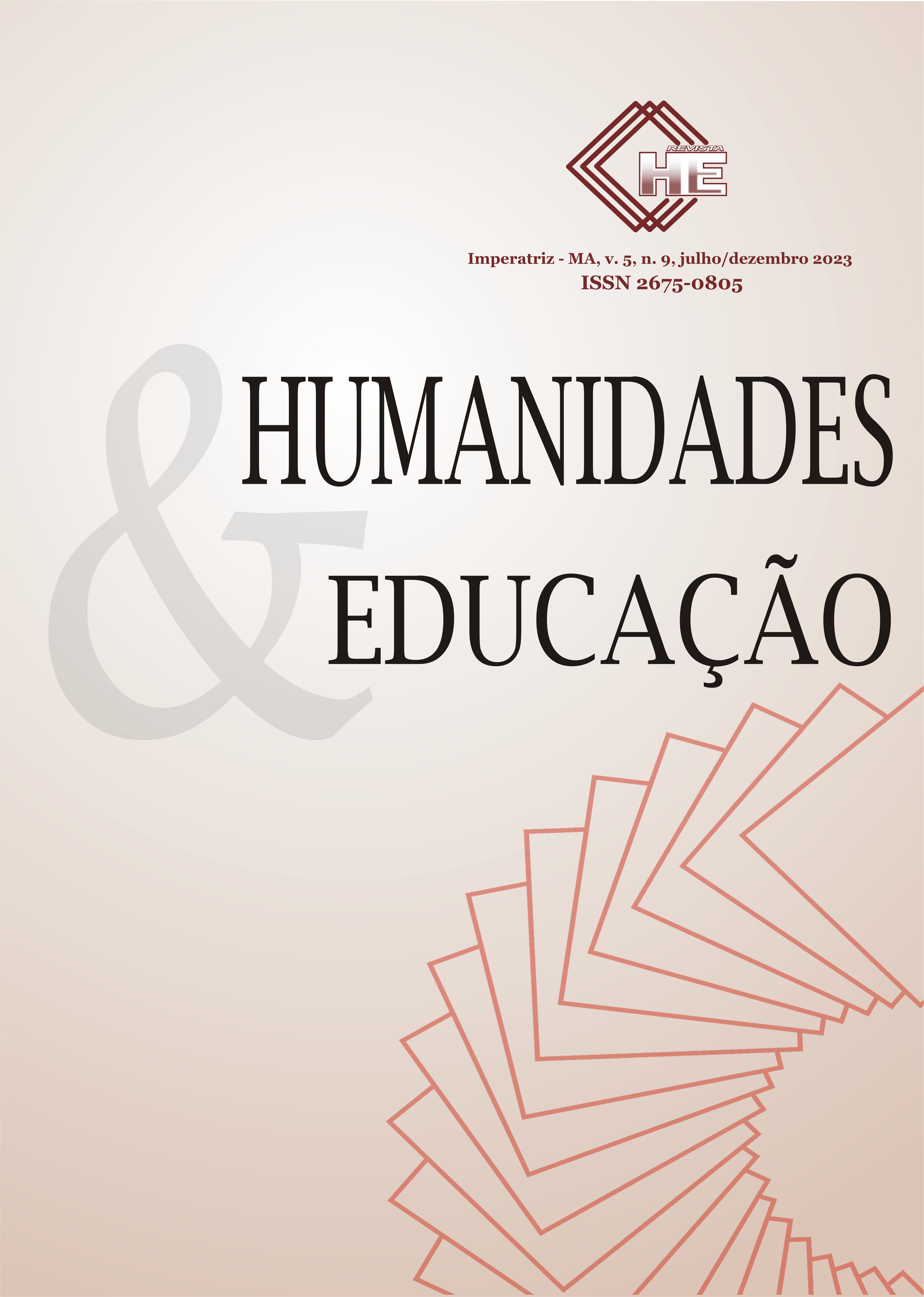MOVING PEDAGOGIES
the participatory methodology of the Centro de Cultura Negra Negro Cosme (CCN NC) as a way to educate for resistance in the city of Imperatriz - MA
Keywords:
Social movement, Black, Non-formal education, Decolonial, Participatory methodologyAbstract
With modernity and the myth of a racial democracy, it created a false harmony between peoples, which culminated in structural and exclusionary racism, and black social movements played a fundamental role in the process of building knowledge, in a collective and organized way in Brazil. Thus, for the construction of this work, we start from the proposal of a decolonial pedagogy, which aims, precisely, at this excluded, heterogeneous and local group: the black movement in the city of Imperatriz, Brazilian state of Maranhão (MA), with the following question: what is the methodology used by the Centro de Cultura Negra Negro Cosme (CCN-NC) to give visibility to the black and afrodescendant people in the process of struggle and resistance in the city of Imperatriz - MA? This work sought to dialogue with authors concerned with this theme of black social movement and education, such as: Gohn (2011), Arroyo (2012), hooks (2019), Walsh (2013), among others, as theoretical support. With descriptive research and qualitative analysis, this study sought to identify the social actors involved in the mediation process, describe their methodological practices, interrelating the micro and macro perspective of the movement. With this, this work pointed to the urgency of talking about an old theme and, at the same time, so current: the prejudice and discrimination of black people; as well as the process of politicization and the selfaffirmation of black identity, constituting the participatory methodology as essential, bringing the possibility of thinking about the decolonial from the practical actions of the CCN-NC.
Downloads
References
ARROYO, Miguel G. Outros sujeitos, outras pedagogias. Petrópolis: Vozes, 2012.
CERQUEIRA, Daniel R. C. (DIEST/IPEA); MOURA, Rodrigo Leandro de (IBRE/FGV). Nota técnica - Vidas perdidas e racismo no Brasil. Ed. nº 10. Brasília: IPEA, 2013.
Disponível em: http://repositorio.ipea.gov.br/bitstream/11058/5977/1/NT_n10_vidas.pdf. Acesso em: 12 de abr. 2021.
FREIRE, Paulo. A mensagem de Paulo Freire: textos de Paulo Freire selecionados pelo INODEP. São Paulo: Nova Crítica, 1977.
GOHN, Maria da Glória. Educação não-formal, participação da sociedade civil e estruturas colegiadas nas escolas. Ensaio: Avaliação e Políticas Públicas em Educação, Rio de Janeiro, v. 14, n. 50, p. 27-38, jan./mar. 2006. Disponível em: https://www.scielo.br/j/ensaio/a/s5xg9Zy7sWHxV5H54GYydfQ/?lang=pt. Acesso em: 11 abr. 2021.
_____. Movimentos sociais na contemporaneidade. Revista Brasileira de Educação, Rio de Janeiro, v. 16, n. 47, p. 333-361, maio/ago. 2011. Disponível em: https://www.scielo.br/j/rbedu/a/vXJKXcs7cybL3YNbDCkCRVp/abstract/?lang=pt. Acesso em: 22 jul. 2021.
HOOKS, bell. Erguer a voz: pensar como feminista, pensar como negra. Tradução de Cátia Bocaiuva Maringolo. São Paulo: Elefante, 2019.
INSTITUTO BRASILEIRO DE GEOGRAFIA E ESTATÍSTICA. Censo demográfico 2010. Tabela 1.3.1. População residente, por cor ou raça, segundo o sexo e os grupos de idade. Brasília, 2010. Disponível em: http://www.ibge.gov.br/home/estatistica/populacao/censo2010/caracteristicas_da_populacao/tabelas_pdf/tab3.pdf. Acesso em: 12 abr. 2021.
LUGONES, María. Playfulness, “world” – travelling, and loving perception. Hypatia, [s. l.], v. 2, n. 2, p. 3-19, verão 1987. Disponível em: https://onlinelibrary.wiley.com/doi/10.1111/j.1527-2001.1987.tb01062.x. Acesso em: 12 jul. 2021.
MUNANGA, Kabengele. Negritude e identidade negra ou afrodescendente: um racismo ao avesso? Revista da Associação Brasileira de Pesquisadores/as Negros/as (ABPN), Goiânia, v. 4, n. 8, p. 6-14, jul./out. 2012. Disponível em: https://abpnrevista.org.br/index.php/site/article/view/246. Acesso em: 12 abr. 2021.
SILVA, Tomaz Tadeu da. A produção social da identidade e da diferença. In: SILVA, Tomaz Tadeu da (org.); HALL, Stuart; WOODWARD, Kathryn. Identidade e diferença: a perspectiva dos estudos culturais. Tradução de Tomaz Tadeu da Silva. Petrópolis: Vozes, 2000. p. 73-102. (Educação pós-crítica).
SOUSA, Maria Luísa Rodrigues de. A contribuição do Centro de Cultura Negra Negro Cosme na implementação da Lei nº 10639/2003 nas escolas estaduais em Imperatriz-MA. Monografia (Especialização em Gestão de Políticas Públicas em Gênero e Raça) – Núcleo de Educação a Distância, Universidade Federal do Maranhão, Imperatriz, 2013.
STOER, Stephen R.; ARAÚJO, Helena Costa. Escola e aprendizagem para o trabalho num país da semiperiferia européia. 2. ed. Lisboa: Instituto de Inovação Educacional, 2000. (Ciências da educação, 25).
STRECK, Danilo Romeu; ADAMS, Telmo. Pesquisa em educação: os movimentos sociais e a reconstrução epistemológica num contexto de colonialidade. Educação e Pesquisa, São Paulo, v. 38, n. 1, p. 243-257, 2012. Disponível em: https://www.revistas.usp.br/ep/article/view/28337. Acesso em: 22 abr. 2021.
WALSH, Catherine. Introducción: Lo pedagógico y lo decolonial: entretejiendo caminos. In: WALSH, Catherine (ed.). Pedagogías decoloniales: prácticas insurgentes de resistir, (re)existir y (re)vivir. Tomo I. Quito: Abya-Yala, 2013. p. 23-68. (Pensamiento decolonial).
Downloads
Published
How to Cite
Issue
Section
License

This work is licensed under a Creative Commons Attribution-NonCommercial-NoDerivatives 4.0 International License.







